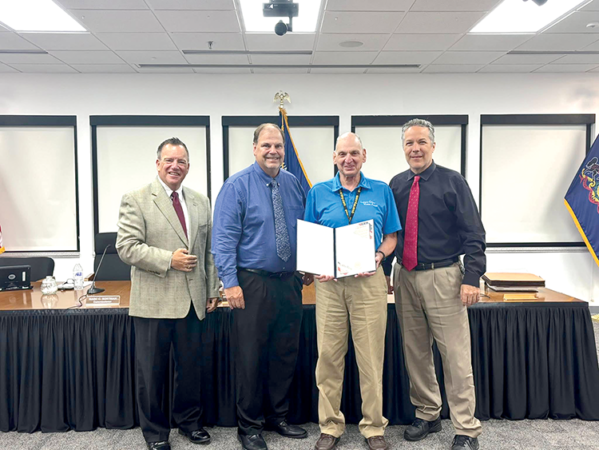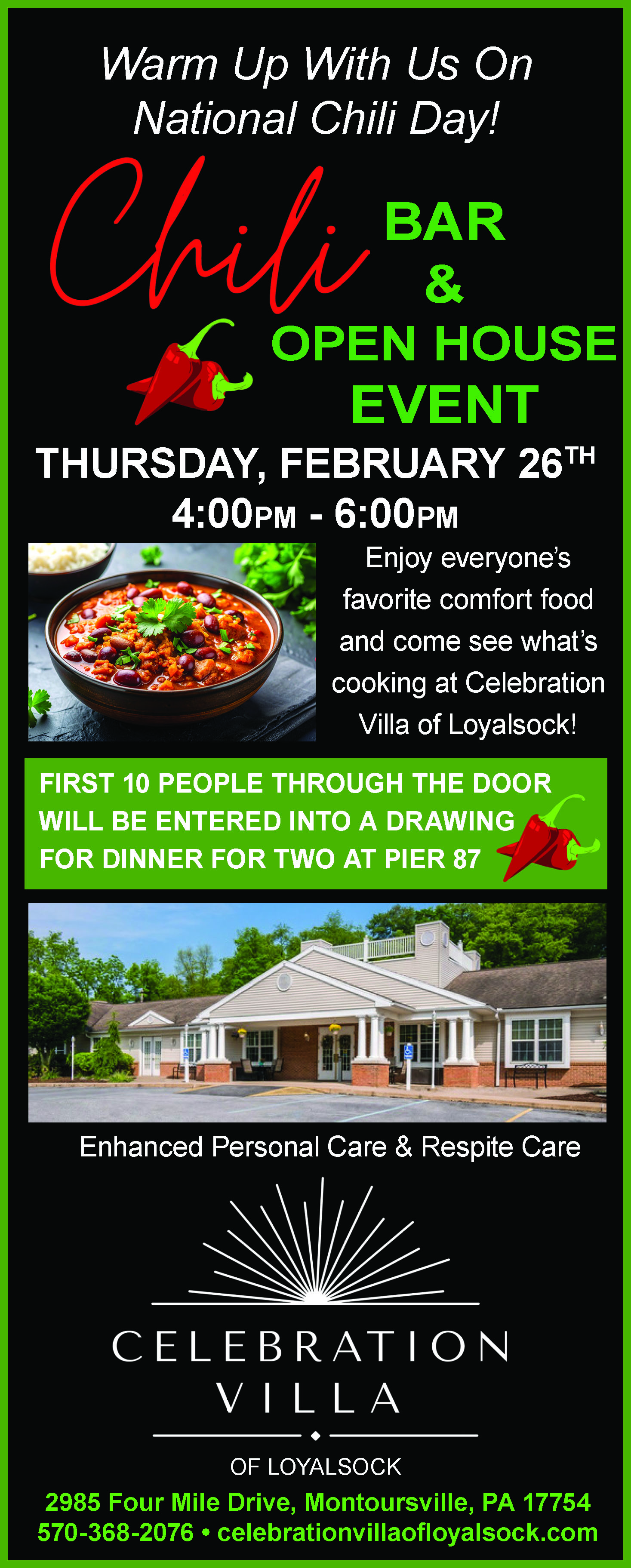As we honor veterans this week, it is perhaps fitting and proper to highlight one of these veterans who has cared deeply for veterans and their problems for many years, having been a veteran himself, Mike McMunn recently retired as head of Lycoming County’s Department of Veterans Affairs. He brought to that job a combination of competence and compassion for local veterans, and was able to look back on more than 50 years of service, including times of peace and war.
Webb Weekly would like to honor this particular veteran and let him tell his own story in his own words about his odyssey of service.
“Following two years of college, I dropped out and enlisted in the US Army in September 1966. Early in my basic training, I was informed I was eligible to attend Officer Candidate School, and as a result, I decided to change my Army plans and attend. It was probably one of the best decisions I ever made. OCS was not easy, but it instilled leadership skills in candidates and developed unimagined potential,” McMunn told Webb Weekly.
“After OCS, I was assigned to Germany, where I worked in a maintenance battalion maintaining equipment required by US forces should war ever erupt in Western Europe. In addition to the active war in Vietnam, the world was still engaged in the Cold War, and this assignment was for a strategic mission.
“In mid-1969, I decided to volunteer to go to Vietnam. My orders were to attend Military Assistance Training Advisor school at Fort Bragg, NC, and then further my Vietnamese language training at Fort Bliss, Texas.
“Once arriving in Vietnam, I was assigned as a battalion advisor to the 5th Division, Army of the Republic of Vietnam (ARVN), headquartered at Lai Khe, a village and base camp about 30 miles north of Saigon. During this time, I worked with my South Vietnamese counterparts daily as they fought the Viet Cong and North Vietnamese regulars in South Vietnam and Cambodia. I came to know the Vietnamese, enjoy their culture, and understand the strife they were enduring.
“I completed my tour of duty in January 1971 and came home to a world I had not really known since leaving in 1967. The United States had changed: there was racial tension, and the war in Vietnam had put deep divisions in the country. I found that being a Vietnam veteran was not to be regarded as someone honorable.
“Being a Vietnam veteran was not something to be advertised. Efforts were made to understate this experience on resumes and when applying for jobs.
“As the years went on, I started to read more about the US involvement in Vietnam and what the political and military factors were that sent me and millions of other Americans to fight in Vietnam, along with a couple of dozen other Vietnam veterans. A local Vietnam veterans’ post was chartered in Lycoming County. The post soon became a rallying point for other veterans who had felt their service had not been honorably recognized. The post was responsible for presenting the first visit of the Vietnam Moving Wall in the county where the sacrifices of men from ten counties were publicly honored,” stated McMunn.
“It was during this time that I started a personal effort to recognize men and women who had served. The first was writing about Privates Ralph Brown and Donald Crane, area men who died in the Ia Drang Valley in November 1965. This continued with writings about other local veterans, including Albert Ralph Campbell, the only county man to have been awarded the Medal of Honor, and Brigadier General George Dodd, a veteran of the Indian Wars, Spanish-American War, and the Mexican Punitive Expedition.
“My philosophy of remembering those who have served our nation began to form. I became active in placing flags on the gravesites of veterans, helping to build Lycoming County Veterans Park, and traveling to Washington, D.C., to read the names of the men and women whose names are etched on the black granite Vietnam Veterans Memorial. I have been honored to continue serving my country by serving on the Lycoming-Sullivan County Selective Service Board for 20 Years, being involved with the Lycoming County Veterans Council, and most recently serving as the county’s Director of Veterans Affairs.
“I am grateful for my military service, as it has provided me with confidence and leadership skills that have helped me throughout life.
I am also grateful for my wonderful wife, Diane, and four children who have supported me by putting up with my meeting schedules, trips to Washington and attendance at parades and memorial events.”
I asked Mike several more questions about his service to veterans.
What has working with veterans in your various capacities taught you or meant for you?
“Having worked with veterans for over 50 years I have learned that most are humble individuals who served in the military for any number of reasons: some did it because they needed a job; some because they really wanted a military career; some did it because it was a family tradition they were expected to follow; some did it because they were drafted; and yes, some did it to avoid going to jail. Most served their country honorably (approximately 86 percent according to government records) and returned to civilian life with a renewed sense of accomplishment. They returned to their families, pursued education, started families, and enjoyed happy and productive lives, seldom speaking of the military experience that helped shape their lives. Sometimes they felt short of their own or society’s expectations but found help through the Veterans Administration or the services provided by Veterans Court if they became justice-involved.”
What can ordinary people do to honor and help our veterans locally?
“I believe that ordinary people should honor our veterans by acknowledging their service. It may seem like an expected or hollow gesture to tell a veteran ‘Thanks for your service,’ but it is thoughtful, and something said to honor them. I would go one step further: I would take a moment to ask them: ‘What did you do in the service’ or ‘Who did you serve with?’ Often this may be the first time anyone asked them that question and, in most cases, they are open to answering and proud to tell you what job they had, where they served, and what experiences they may have had. I have found that perhaps no one has ever asked them that question. They served, came home, and quietly went on with their lives. Another way to honor a veteran is to purchase a Hometown Hero banner and display it in the community to show your pride in that veteran. Through this effort, you are not only honoring your veteran but also supporting an organization that provides financial assistance to veterans struggling to pay rent, utilities, vehicle repairs, repairing a bathroom, or getting a handicapped ramp installed.”
What should being a veteran mean to them?
“Being a veteran should be a source of pride and sacrifice. They put their civilian lives on hold and now join a long, long list of men and women, stretching back to the Revolution, who have given of themselves to fight for the ideals and freedom that make this nation strong.”




